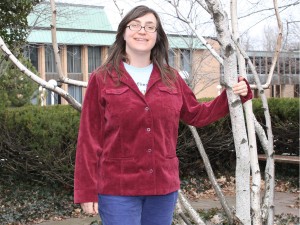Ruby Beil, LCCC
ELYRIA, Ohio — The sustainable agriculture movement is drawing so much interest that at least two prominent two-year colleges are now offering a degree in sustainability.
Through a partnership that formed over the past couple years, the Lorain County Community College in Elyria, and Ohio State University’s Agricultural Technical Institute in Wooster, both offer joint courses to help prepare students for markets in sustainability.
At Lorain County Community College — LCCC — students can complete 20 credit hours and earn a certificate in sustainable agriculture. They can also earn dual certificates in specialty crop production or permaculture design, depending on the classes students select.
At the Agricultural Technical Institute, they can complete 68 credit hours and earn an associate degree in sustainable agriculture. Students who start at LCCC and want to continue their education in sustainability often elect to go to ATI.
“We’re in constant communication to make sure that our courses will align with (ATI),” said Ruby Beil, professor at LCCC and coordinator of the college’s sustainable agriculture program.
What’s covered
A degree in sustainable agriculture might sound a little open-ended to some, but the courses included are very specific, while also covering a wide range of agricultural and environmental sciences. Some of the courses cover soil management, specialty crops and issues that pertain to running a business.
Beil said the program was formed as a pilot project about two years ago and roughly 30 students are enrolled in at least some of the sustainability courses. The coursework and the certificate are based on interactions faculty have had with a collegiate advisory board, independent farmers and farm market owners, farm organizations like Ohio Farm Bureau Federation, as well as other community colleges and schools.
She said there is a need for educated workers who maybe want to farm on a smaller scale, or revitalize smaller parts of a once-large farm.
“They’re (students) starting to see these larger farms be parcelled back up into smaller farms,” she said, and so the program strives to “meet the demand” of educating those students to be productive and profitable.
Broad network
Nels Hansen, associate professor and chairman of the agricultural and engineering technologies division for ATI, said input also was gathered from faculty at the Ohio Agricultural Research and Development Center, as well as throughout OSU — about a growing new market.
“What’s happening up there in Elyria is the same thing we’re seeing pop up in different community colleges in Ohio,” he said. “That there is a demand for local food production and a demand for (courses) that are teaching that kind of a business model.”
The ATI continues to offer its long-standing degrees in production agriculture, for students who want to become full-time farmers or who maybe have farming in their background.
But Hansen and Beil said for students who do not — or are looking to expand on a limited farming background and still get into food production — the sustainability degrees are a good option.
Casey Hoy, an OSU professor based at OARDC, helped with some of the initial work in securing grants for ATI, and surveying the level of community interest in creating such an area of study.
He said interest was strong, especially with the growing interest in locally-produced foods and job creation within those markets.
“There are students really interested in agriculture all over the state — a lot of people currently outside of agriculture that are interested in getting involved,” he said. “There’s a lot of opportunity that’s emerging in agriculture that serves local markets that’s more diversified (and) smaller scale.”
On the farm
Both colleges offer hands-on opportunities through labs, as well as courses that are taught on farms. At LCCC, students in the sustainability program are heavily involved in the George Jones Farm — a 40-acre property that is being converted into a complex of market gardens, learning spaces, naturally designed buildings, as well as restored wetland, prairie and woodland habitat.
The farm provides produce for City Fresh and Oberlin College, as well as hands-on experience for local school groups and applied research and learning for Oberlin College students and faculty.
At the ATI, students have access to the Mellinger Farm — a donated farm that is used for showcasing sustainable small farms, as well as education and research.
At LCCC, students who want to study sustainability generally follow three career routes. They can get their certificate and then become entrepreneurs and start their own business venture; they can fulfill an apprenticeship on an existing farm or farm business; or, they can continue their education at ATI, and graduate with the associate degree.
Beil expects the program will graduate its first students this summer, with the hope that many more will follow. At ATI, only a handful of students have enrolled thus far, but Hansen said the coursework is definitely part of a growing market.Beil said students can use the knowledge they gain to pursue careers, or they can also use it to better their personal lives and grow their own food.
Many are just looking for ways to improve their lives above and beyond wanting to make a lot of money,” she said.
The program involves a strong sense of community — from the many local students it serves to the many local farmers and educators who serve as resources.“All of those opportunities create a stronger and stronger community network in the region,” she said.












